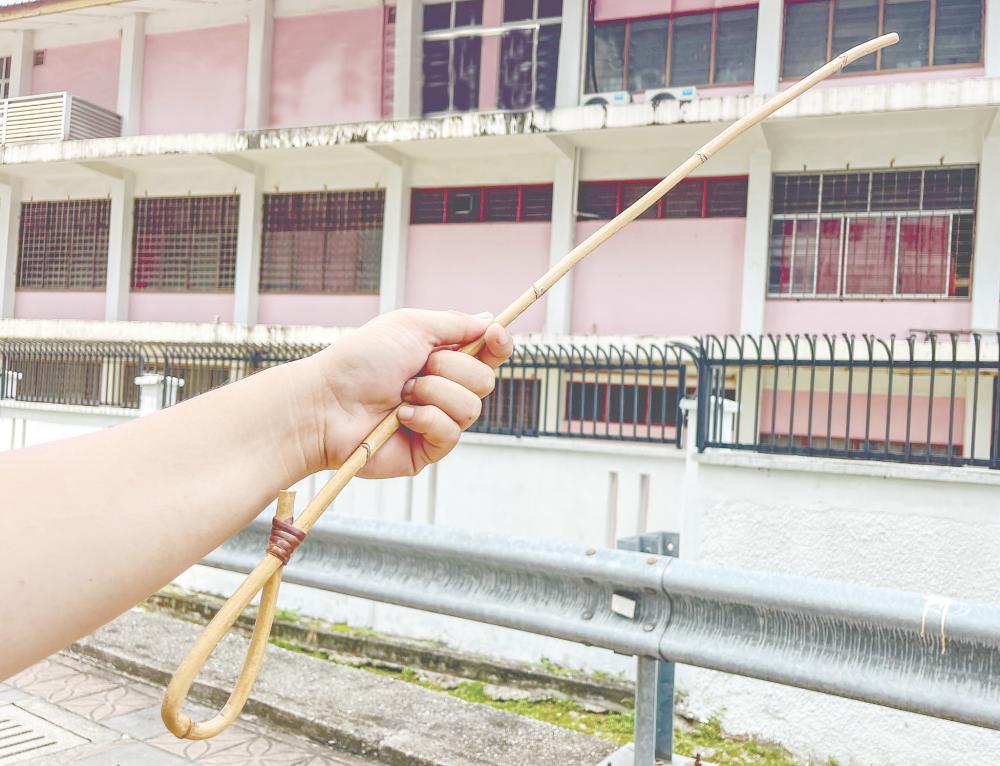PETALING JAYA: For decades, the swish of the cane echoed through Malaysian schools, a stark reminder of the “spare the rod and spoil the child” belief in education. But Universiti Kebangsaan Malaysia senior lecturer Dr Anuar Ahmad said corporal punishment is not only outdated but also psychologically damaging to students.
“Corporal punishment does not instil discipline, it imprints fear which can turn into stress, depression and even long-term psychological problems. Students who are frequently caned may grow up believing that physical violence is a solution to their problems,” he said.
Anuar emphasised the belief that physical punishment leads to repentance is misguided, as there are many cases of students continuing to misbehave even after multiple punishments.
“For some, the embarrassment of being caned in front of their peers leads to disengagement, a drop in academic performance and absenteeism. Studies show that corporal punishment can cause students to develop low self-esteem, social withdrawal and in extreme cases, aggression.”
He said research also suggests that children who experience frequent physical punishment are more likely to resort to violence when dealing with conflicts in their adult lives.
Instead of relying on punishment, Anuar advocates early intervention and guidance.
“Rather than waiting for students to misbehave and then punishing them, we should identify the root causes of their misbehaviour. Many students act out due to personal or family issues. If we catch the warning signs early, such as declining grades or frequent absenteeism, we can guide them before they go down the wrong path.”
Anuar said most Malaysian teachers are trained in child psychology and discipline management but in schools with thousands of students, there may only be one or two counsellors, which is insufficient.
He proposed that the Education Ministry appoint mobile counsellors who could visit multiple schools, particularly those with high disciplinary issues.
“We need more professionally trained counsellors instead of teachers acting as counsellors so students feel safe enough to open up about their struggles. Instead of just punishing students, teachers should work with parents to understand what’s happening at home. Parent-teacher meetings should focus not just on academics but also on student well-being.”
While corporal punishment is still allowed in Malaysian schools under strict regulations in which only headmasters or authorised teachers can administer it, Anuar believes it is time to move on.
“We should be raising a society that is non-violent, empathetic and understanding. If we want a violence-free future, we have to stop hitting our children today.”
He said as more countries ban corporal punishment in schools, Malaysia faces a crucial decision whether to embrace a more progressive and compassionate approach to discipline.
SJK (T) Vivekananda science teacher Thenmoly Rajan said while the cane was once effective, it now has more negative consequences.
“It depends on the student. For some, it works. But for others, it creates fear and resentment,” she said, adding that she manages misbehaviour with stern instructions, which students generally follow.
However, she believes interaction is key and regularly checks on the well-being of her students, as emotional support is crucial.
While Thenmoly sees counselling as effective for secondary students, she is skeptical about its impact on younger children. She said parents generally oppose caning but still expect teachers to be strict.









